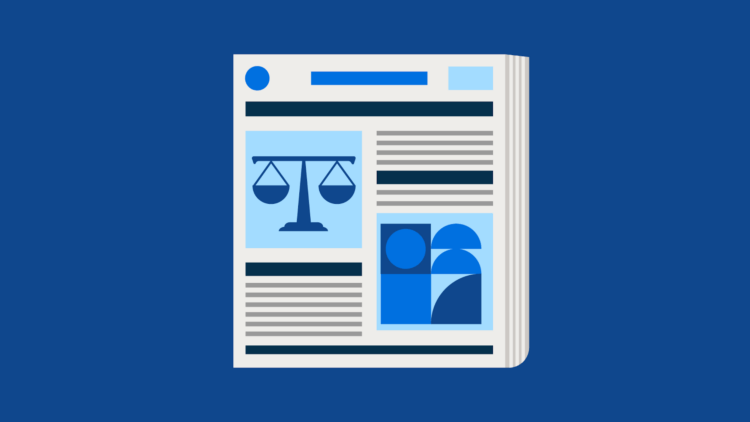Can law firms use the cloud? With widespread adoption by both consumers and business, and increasing cloud adoption amongst law firms, there is still a section of lawyers that remain skeptical about legal cloud computing, and whether they can use the cloud in their legal practices.
Bar Associations and Law Societies within the US and around the world have issued ethics opinions on cloud computing for lawyers. The vast majority highlight that lawyers can use cloud computing, provided they do appropriate due diligence and find a provider that complies with a lawyer’s ethical duties. For example, a provider must be able to ensure a reasonable expectation of security so that a law firm is able to keep it’s clients’ information confidential in the cloud.
Below are charts linking each ethic opinion on cloud computing for lawyers. We’ve also included some high-level guidance to help a law firm with research into their jurisdiction’s requirements, based on relevant language from the opinions.
In total, 30 US States have issued formal or informal ethics opinions on cloud use for lawyers, and the American Bar Association has also issued an opinion. Outside of the US, we’re tracking 5 other jurisdictions that have issued ethics opinions on cloud computing for lawyers as well.
US State Bar Ethics Opinions on Cloud Computing for Lawyers
| Jurisdiction | Issuer | Key Language |
| ALABAMA | Alabama State Bar Office of General Counsel |
|
| ALASKA | Alaska Bar Association |
|
| ARIZONA
Opinion 09-04 (Note ethics opinions are now governed by the Arizona Supreme Court’s Attorney Ethics Advisory Committee (AEAC), that was created pursuant to Rule 42.1, Ariz. R. Sup. Ct., and Administrative Order No. 2018-110. No past opinions are formally adopted by this committee at this time.) |
State Bar of Arizona |
|
| CALIFORNIA | The State Bar of California standing Committee on Professional Responsibility and Conduct |
|
| CONNECTICUT | Connecticut Bar Association Professional Ethics Committee |
|
| FLORIDA | Florida Bar Professional Ethics Committee |
|
| ILLINOIS | Illinois State Bar Association |
|
| IOWA | Iowa State Bar Association Ethics and Practice Guidelines Committee |
|
| KENTUCKY | Kentucky Bar Association |
|
| LOUISIANA
Opinion 19-RPCC-021(focusing on technological competency but covering cloud usage) |
Louisiana State Bar Association |
|
| MAINE | Professional Ethics Commission of the Maine Board of Overseers of the Bar |
|
| MASSACHUSETTS | Massachusetts Bar Association |
|
| MICHIGAN
Opinion RI-355 (declares cloud use permissible in dicta) Opinion RI-381 (focusing on technological competency but covering cloud usage) |
State Bar of Michigan |
|
| MISSOURI | Missouri Bar Legal Ethics Counsel |
|
| NEBRASKA | Nebraska State Bar Association Ethics Advisory Committee |
|
| NEVADA | State Bar of Nevada Standing Committee on Ethics and Professional Responsibility |
|
| NEW HAMPSHIRE | New Hampshire Bar Association Ethics Committee |
|
| NEW JERSEY | New Jersey Advisory Committee on Professional Ethics |
|
| NEW YORK | New York State Bar Association Committee on Professional Ethics |
|
| NORTH CAROLINA | North Carolina State Bar Ethics Committee |
|
| OHIO | Ohio Board of Professional Conduct |
data, nonauthorized access to the stored data, or other breach of Security. Reliable means of retrieving the data if the agreement is terminated or the vendor goes out of business. |
| NORTH DAKOTA
Opinion 99-03 (examining cloud backups) |
State Bar Association of North Dakota Ethics Committee |
|
| OREGON | Oregon State Bar |
|
| PENNSYLVANIA | Pennsylvania Bar Association Committee on Legal Ethics and Professional Responsibility |
|
| TENNESSEE | Board of Professional Responsibility of Tennessee Supreme Court |
|
| TEXAS | Professional Ethics Committee for the State Bar of Texas |
|
| VERMONT | Vermont Bar Association |
|
| VIRGINIA | Virginia State Bar Standing Committee on Legal Ethics |
|
| WASHINGTON | Washington State Bar Association Committee on Professional Ethic |
|
| WISCONSIN | State Bar of Wisconsin Professional Ethics Committee |
|
You may like these posts
Other US Bar Association Ethics Opinions on Cloud Computing for Lawyers
| Issuer | Key Language |
| AMERICAN BAR ASSOCIATION
Formal Opinion 95-398: Access of Nonlawyers to a Lawyer’s Data Base |
|
Global Ethics Opinions on Cloud Computing for Lawyers
| Jurisdiction | Issurer | Key Language |
| CANADA, BRITISH COLUMBIA | Law Society of British Columbia |
|
| EUROPE
CCBE Guidelines on the Use Of Cloud Computing Services By Lawyers |
Council of Bars and Law Societies of Europe | [D]ata protection laws and professional secrecy principles should be taken into account by lawyers as a primary step when considering using cloud computing services. |
| SINGAPORE | Law Society of Singapore |
|
| SCOTLAND | Law Society of Scotland |
|
| ENGLAND | The Law Society of England and Wales |
Can your law firm use the cloud?
If the state or jurisdiction you practice in is featured within this list, make sure any cloud computing providers you use align with the recommendations within your state’s ethics opinion. No matter what, make sure your provider has strong security standards.
If you’re not sure which legal cloud computing tools your firm needs, check out this list of what technology your law firm actually needs.
If your state or jurisdiction is not on this list, that doesn’t necessarily mean your law firm is prohibited from using the cloud. Make sure you’re following data security best practices, and reach out to your bar association’s ethics committee if you have concerns. I also recommend tuning in to this webinar on tech competence for lawyers put on by myself and Bob Ambrogi.
Today, cloud technology has a wealth of benefits that outweigh any potential risks for law firms, including increased efficiency, lower overhead, and ease of use for their teams. Law firms should feel confident exploring cloud providers, allowing them to benefit from the flexibility and adaptability the cloud provides in a modern environment.
Note: The information in this article applies only to US practices. This post is provided for informational purposes only. It does not constitute legal, business, or accounting advice.
We published this blog post in April 2020. Last updated: .
Categorized in: Technology









